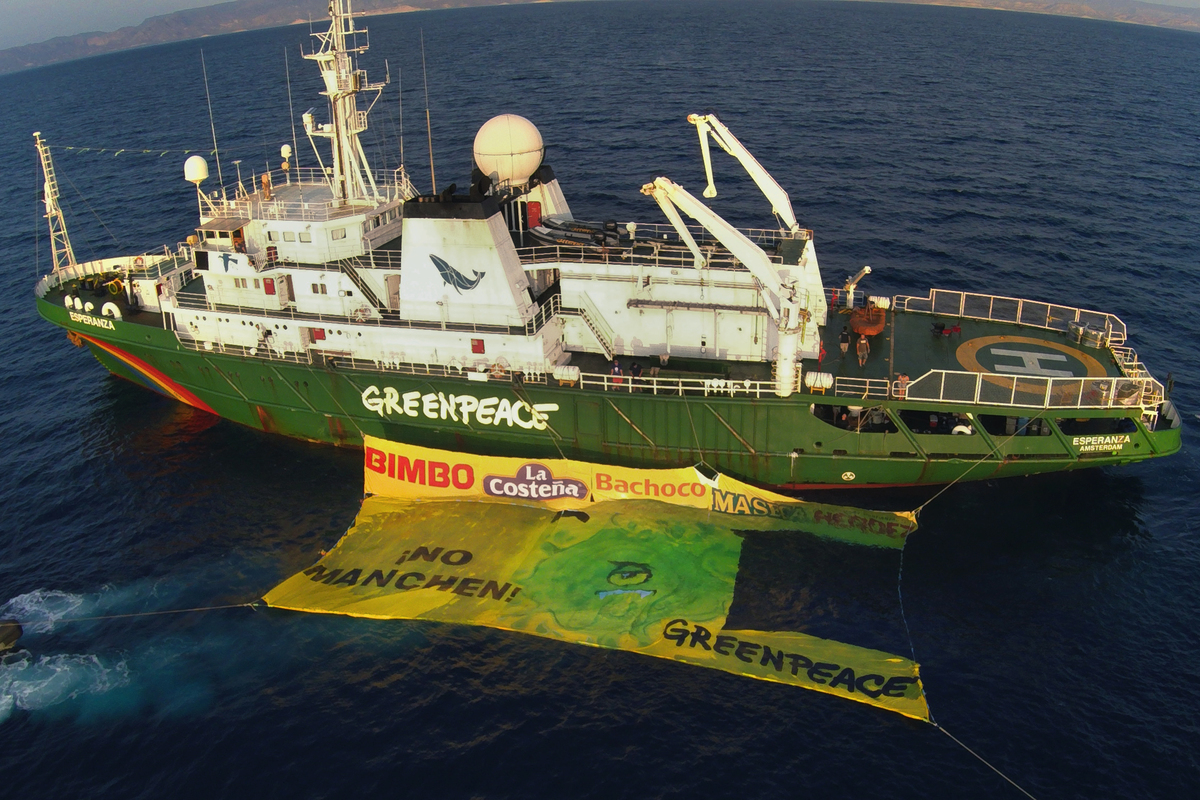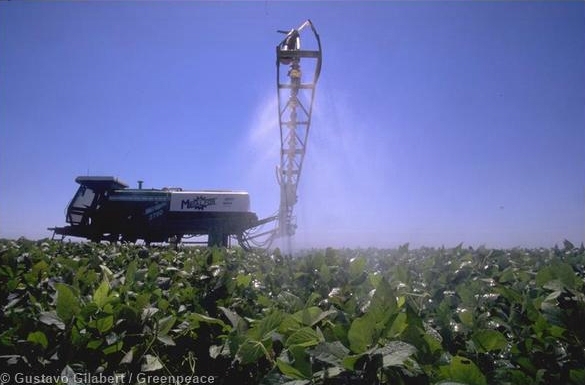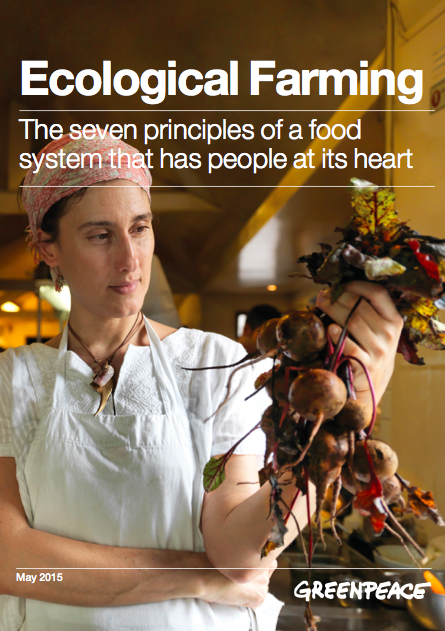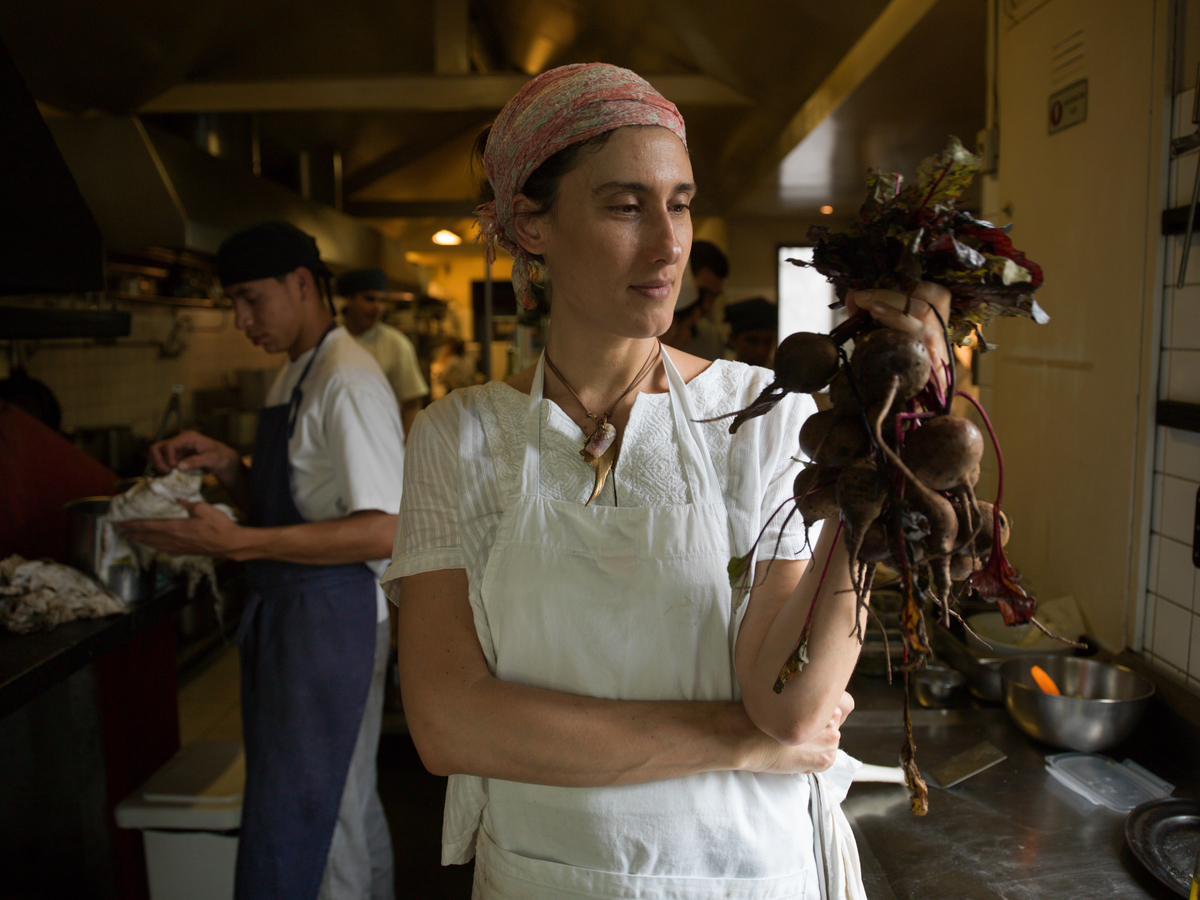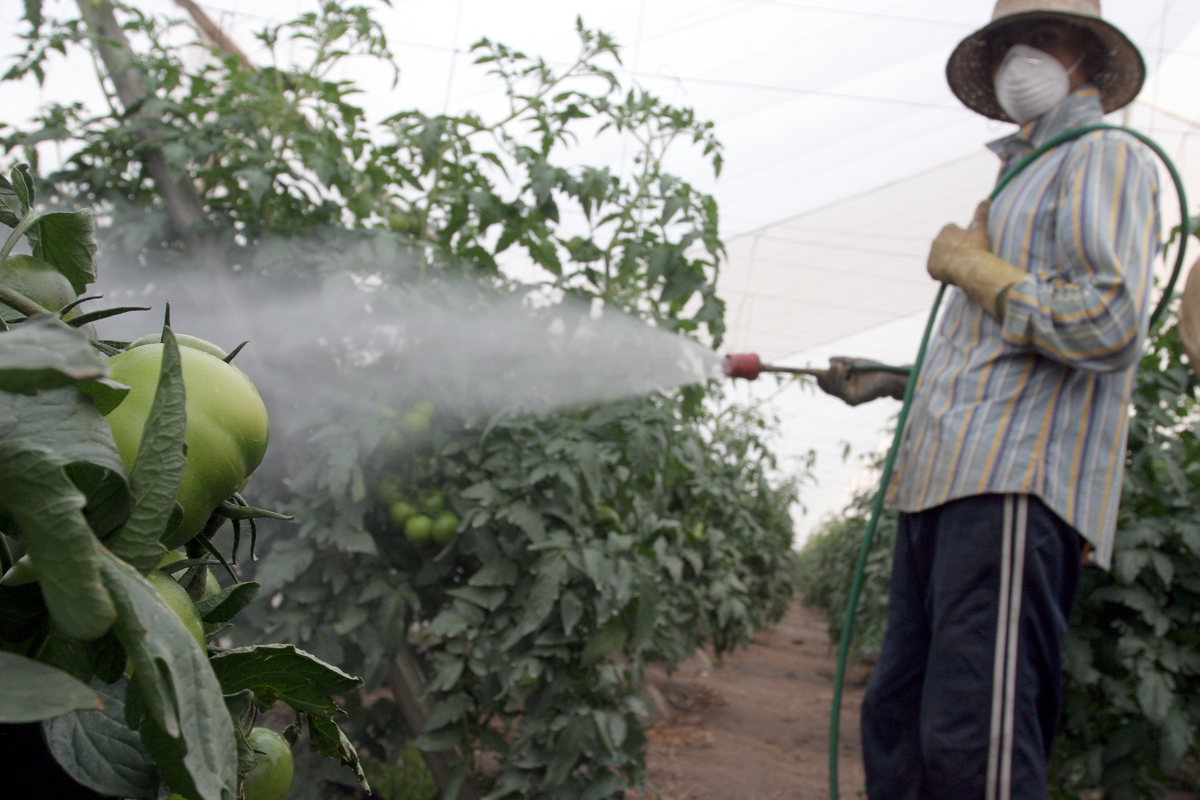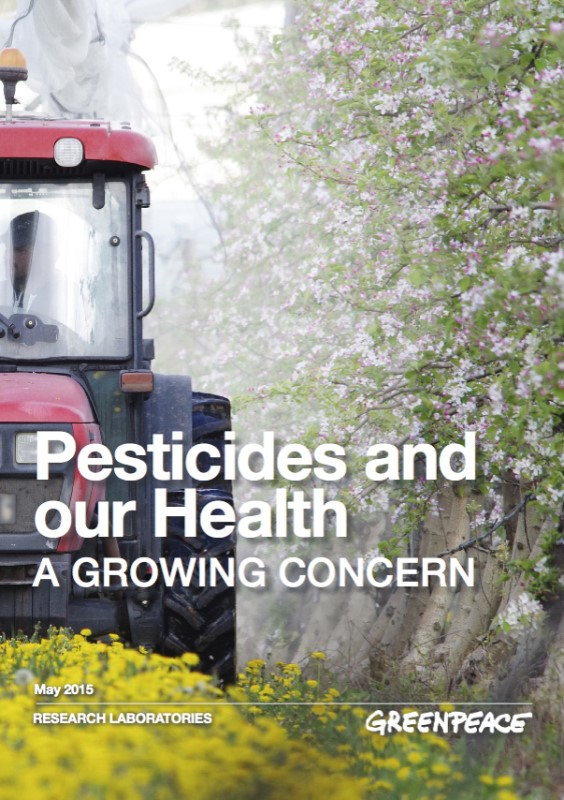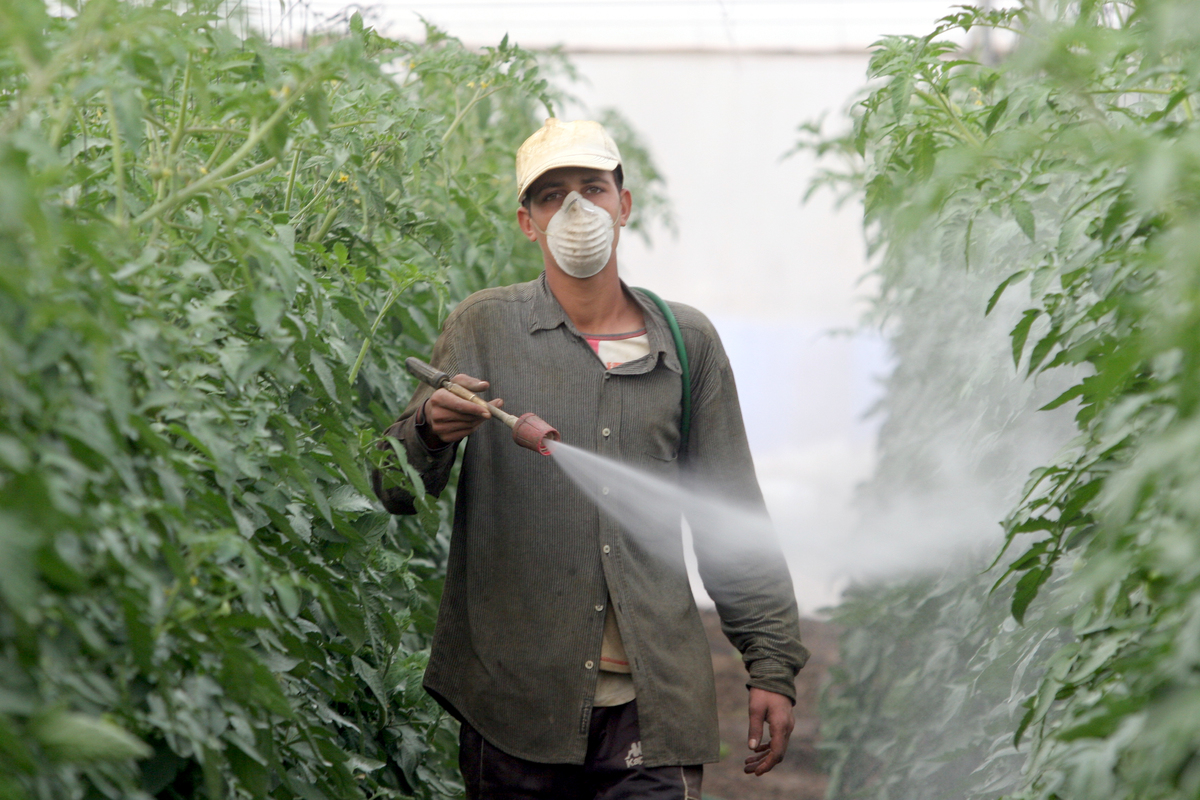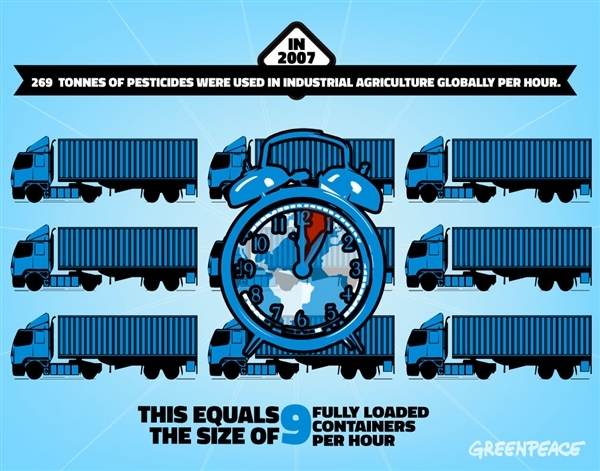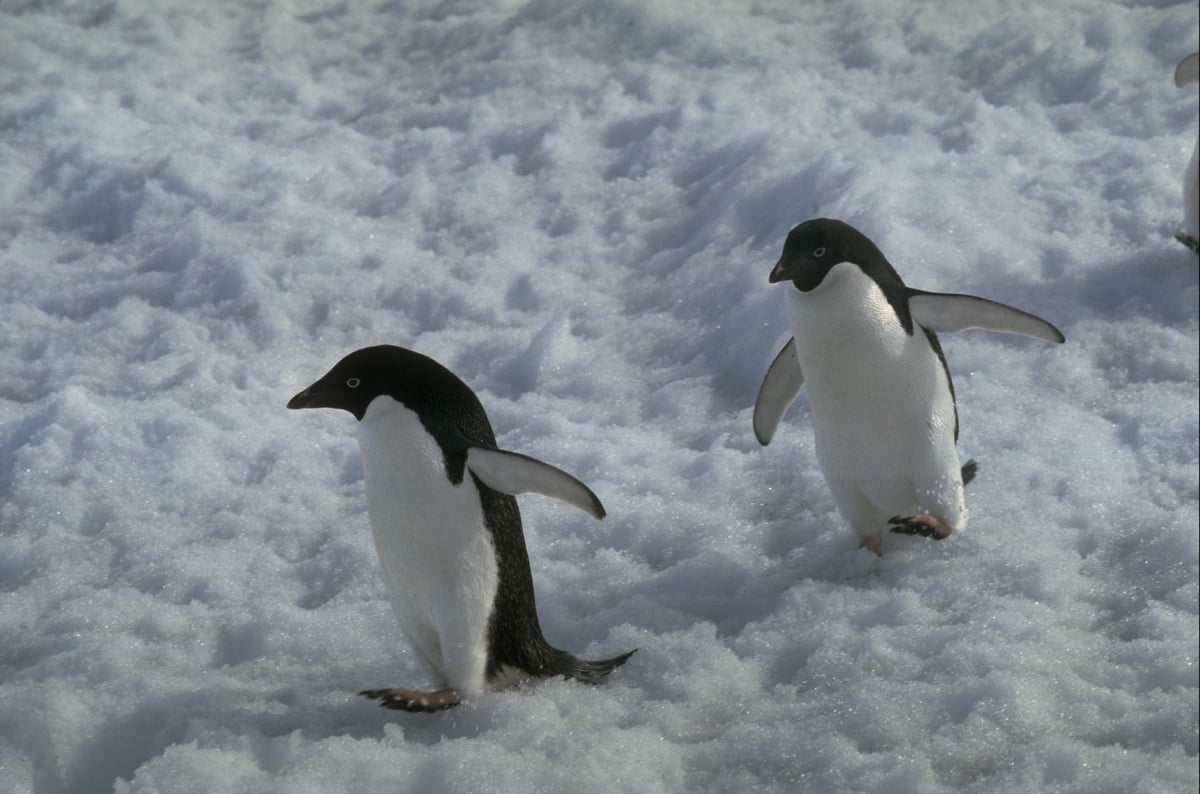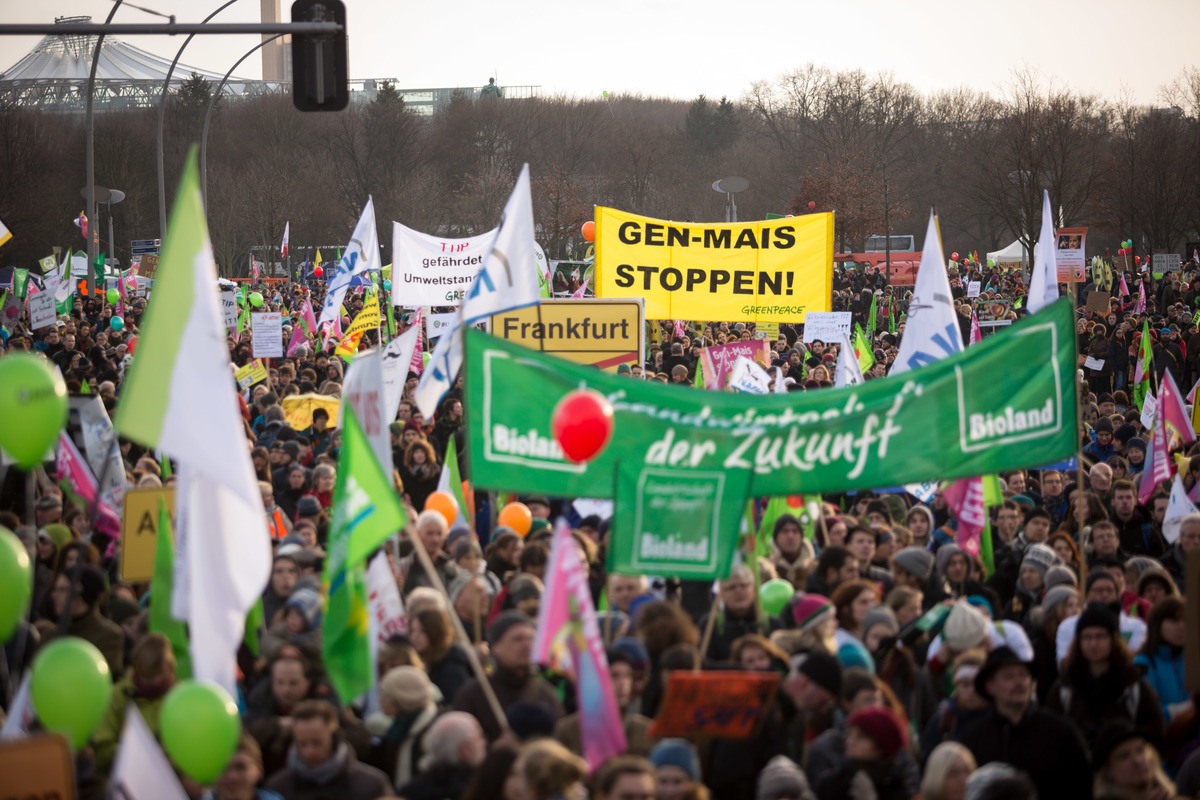All articles
-
Esperanza investigates agrotoxics in the Gulf of California
The Greenpeace ship Esperanza is currently on the second leg of its tour in the Gulf of California, investigating toxic chemicals associated with agriculture. Last week, activists sent a message to food companies Bimbo, La Costeña, and Herdez, among others. The reason? These companies are using harmful fertilizers in the production of their food products.…
Maia Booker2 min read -
How our breakfast choice can change the food system
8:00 am, Monday, southern Spain: "What's for breakfast, Mom?"
Reyes Tirado3 min read -
Ecological Farming
We are living with a broken food system. It needs to be replaced urgently for the benefit of all people, and the planet. Greenpeace's Food and Farming Vision describes what Ecological Farming means, and how it can be summarised in seven overarching, interdependent principles – based on a growing body of scientific evidence.
Greenpeace International1 min read -
Greenpeace demands scale up of ecological farming
Amsterdam, 18 May, 2015 – Ecological farming, a path towards an agricultural model that protects the environment and secures farmers' livelihood, has been mapped out in a Greenpeace report released today. It is a system based on the latest scientific innovations and produces healthy food while working with nature.
Greenpeace International2 min read -
Those who produce our food suffer the most
How pesticides affect farmers' and our health.
Kirsten Thompson3 min read -
Pesticides and our Health
Since 1950 the human population has doubled, yet the area of arable land used to feed these people has increased by only 10%. There are huge pressures to provide food, at low cost, on land that is becoming more and more degraded as nutrients are stripped from the soil. Reliance on external inputs – fertilisers…
Greenpeace International1 min read -
Greenpeace report reveals farmers are the most vulnerable to health risks from pesticides
Exeter/Hamburg, 12 May, 2015 – A review of scientific literature shows clear evidence that exposure to certain pesticides, currently allowed in European fields, is associated with different forms of cancer, neurodegenerative diseases such as Parkinson’s and Alzheimer’s, and diseases of the newborn. This is the conclusion of a new report published today by Greenpeace, Pesticides…
Greenpeace International2 min read -
When industrial food fails us, it’s time to change the food system
The current food system is broken. We all see how industrial and chemical intensive food production impacts on people and farmers, the planet and animals.
Alessandro Saccoccio2 min read -
Krill-gotten gains to fund Antarctic research
Scientific research and conservation need more cash. That's sadly usually true. It's especially the case in the Antarctic where research is expensive but absolutely essential given the massive environmental changes happening there.
Willie Mackenzie3 min read -
Food movement on the march
I joined the march against agribusiness in Berlin on Saturday, 17 January. It is too easy to be blasé about yet another demonstration. However, the large turnout of tens of thousands of people of all ages during a winter day was good for me.
Eric Darier2 min read

